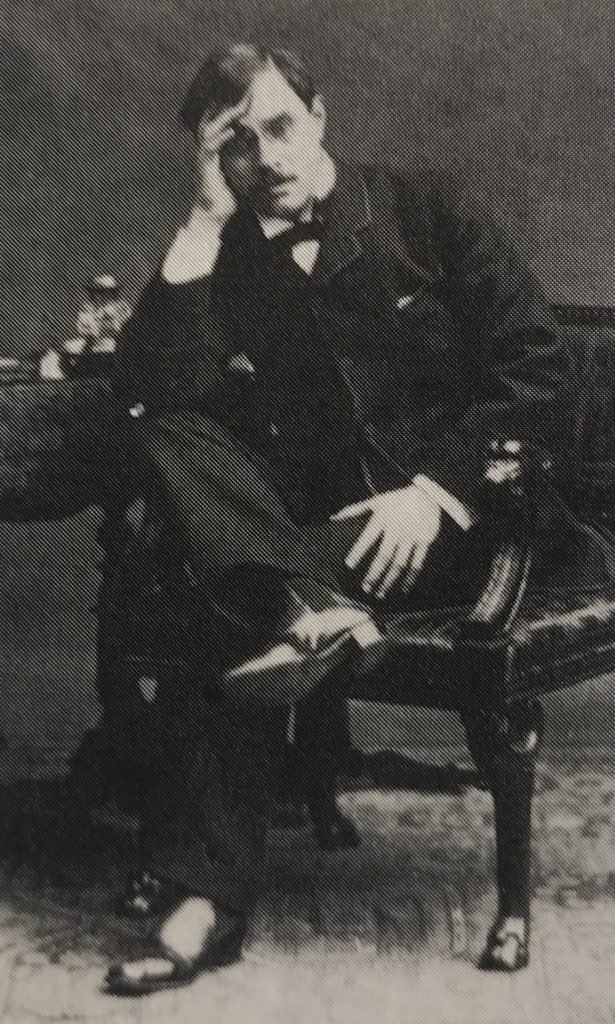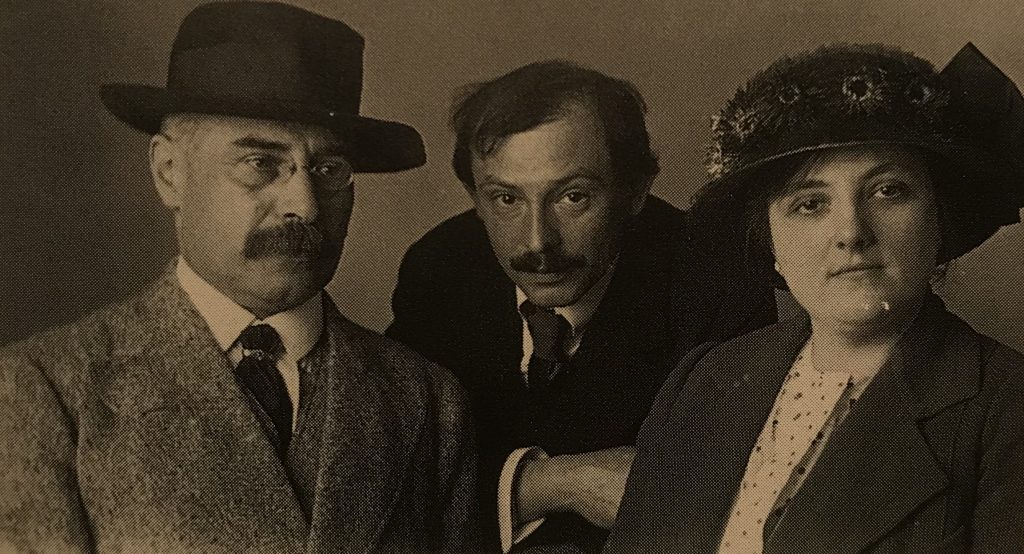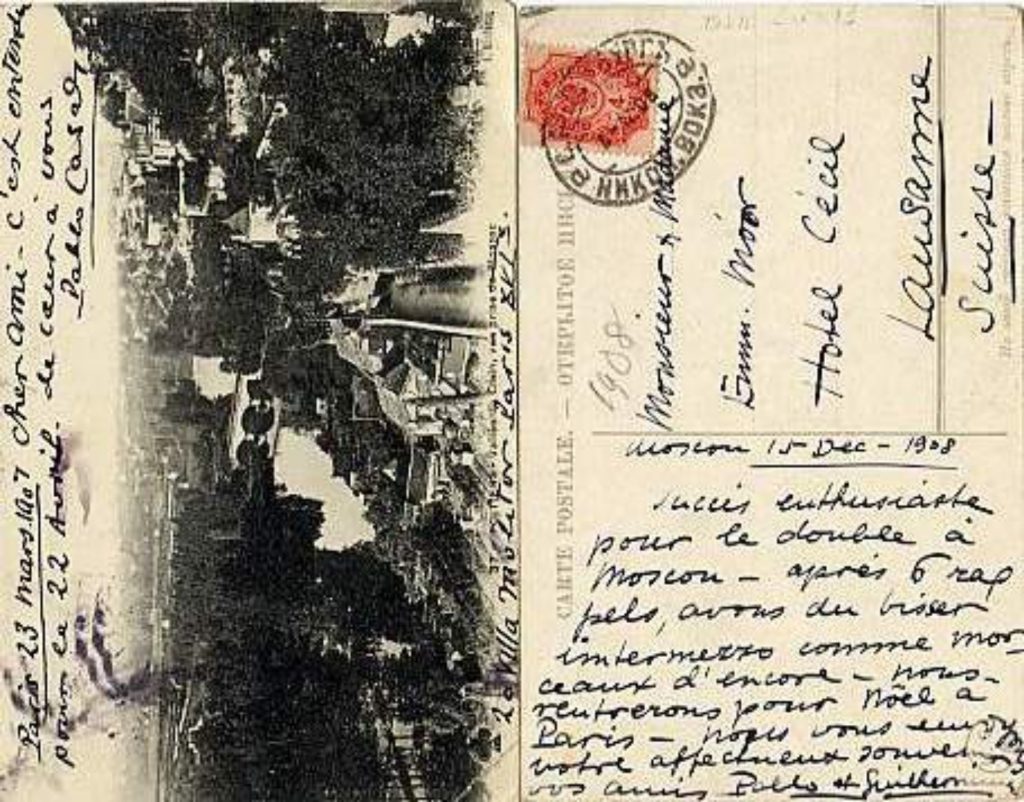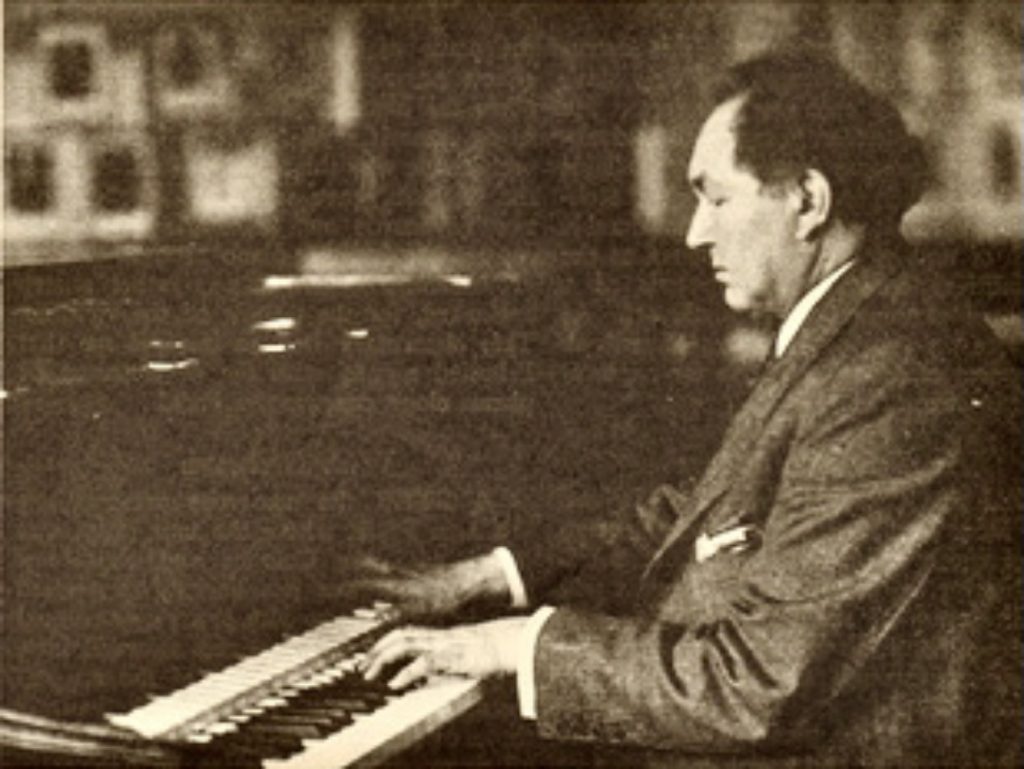Emanuel's origin
Emanuel is born in 1863. Childhood in Hungary, father Jewish cantor, Emanuel plays the organ in the community, later concert activity as a pianist.
Love
Marriage to Anita Burke. Anita comes from an Irish-American family. Her father has become wealthy by importing Irish whiskey to America. Emanuel and Anita settle in England on a country estate for 12 years. Emanuel composes and lives the life of a country lord in lavish circumstances. Anita cares for Emanuel in silent love.
Rise
Relocation to Lausanne, Switzerland. Seven years without a permanent residence, Emanuel and Anita reside in luxury hotels in Lausanne.
Intense work as a composer. Friendship with Pablo Casals, the most important musicians and orchestras perform his works: Casals, Eugène Ysaÿe, Alfred Cortot, Vienna Philharmonic, Berlin Philharmonic.
Casals writes from Moscow on 15 December 1908:
"Enthusiastic success for the double concert in Moscow. After returning to the podium six times, we had to give the Intermezzo as an encore. We are going back to Paris for Christmas. We send you the most beautiful memories.
Your friends, Pablo and Guilherminia."
“Begeisterter Erfolg für das Doppelkonzert in Moskau. Nachdem wir sechs Mal auf das Podium zurückkehrten, mussten wir das Intermezzo als Zugabe geben. Wir fahren zu Weihnachten zurück nach Paris. Wir senden Ihnen schönste Erinnerungen.
Ihre Freunde, Pablo und Guilherminia.”
Emanuel with disturbing character traits
Emanuel creates enemies through sharp-tongued and hurtful remarks and actions. Example: Casals manages with difficulty to place a work by Emanuel in his concert programme in a renowned but conservative concert series in London. His partner at the piano belongs to the establishment of this concert series. Emanuel attends the dress rehearsal and becomes increasingly incensed by the way the pianist interprets Bach. He storms forward, interrupts the pianist and plays the entire work for him to show how it should be performed.
Strokes of fate
Two sons die shortly after birth. Anita and Emanuel take in a girl and a boy from Anita's family. The boy, who has become quasi a son, falls in the war. Emanuel's creativity dries up halfway through his life - he no longer composes.
The Duplex Coupler Grand Piano
With two carpenters, Emanuel saws up a piano and builds a first prototype of the new instrument. This enables him to convince the Swiss piano manufacturer Schmidt-Flohr in Bern to professionally produce two grand pianos. Later, Emanuel links up with the Aeolian Company London. The company has a large, worldwide distribution network and high sales figures, but does not produce such high-quality instruments. The company cannot live up to expectations and agreements. Emanuel proves to be an ingenious designer but a less than skilful negotiator. It is only with the arrival of the Pleyel company from Paris that the project receives a boost. There is a significant improvement in the mechanics, and later the market leaders join in: Bechstein, Steinway, Bösendorfer. The positive reception of the instrument in the metropolises of concert life is evidenced by the many concert reviews.
New love
Winifred Christie is a world class pianist. She is enthusiastic about the instrument and introduces it to the public. Intensive collaboration with Emanuel. Anita falls ill and dies. Shortly afterwards Winifred and Emanuel marry.
Winifred travels the world with the Duplex Coupler Grand Piano. She performs with the Berlin Philharmonic, the Vienna Philharmonic, the Concertgebouw Orchestra and gives guest performances at Carnegie Hall, playing the Duplex Coupler Grand Piano.
Werner von Siemens
Siemens has a Duplex Coupler Grand Piano built by Steinway. This instrument is kept for years in his private concert hall in his villa in Berlin. Illustrious guests find their way there. Together with Werner von Siemens, Emanuel develops a piano with two manuals without a soundboard. The sound is transmitted from the strings to loudspeakers by electric pickups. The invention is patented
Death, Second World War
Emanuel dies in 1931 and the idea loses an inner driving force. The Second World War destroys all efforts. The family rejects the Jewish faith in order to survive.
Epilogue
After the war, Winifred tries to bring the Duplex Coupler Grand Piano back into people's consciousness. She commissions compositions and gives grants to composers who compose for the instrument. International concert soloists such as Gunnar Johansen or Leopold Godowsky play the instrument. Bruno Walter is enthusiastic about the "enormous sonority" and presents the instrument in Berlin and Vienna. Nevertheless, the Duplex Coupler Grand Piano falls into oblivion. Why did it come to this?








